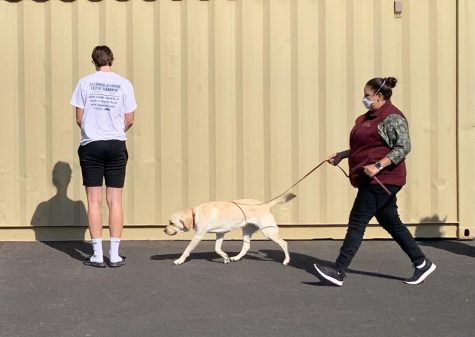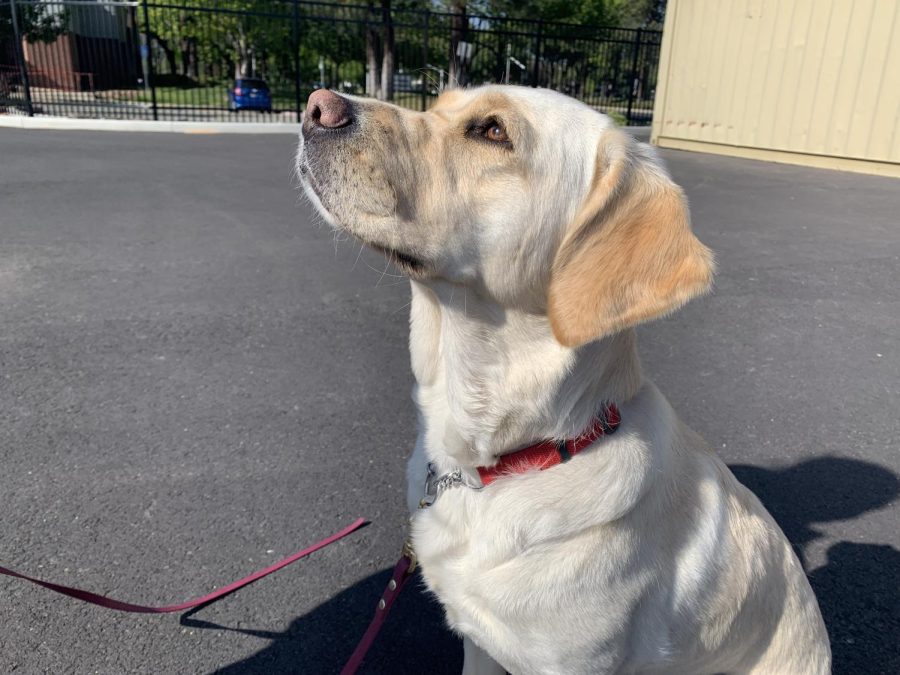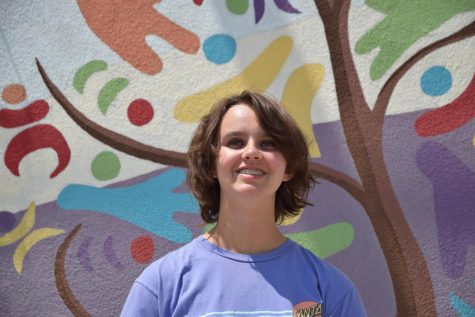COVID-19 detecting dogs to be used at Hart Middle School
Canine Scarlet is in the pilot program Early Alert Canines at a Covid-19 testing site at Hart Middle School.
May 4, 2022
Since last December, Early Alert Canines, a company and program based in Concord, has been training and testing a pilot program where dogs are used to sniff out COVID-19. PUSD and the California Department of Public Health joined together to bring students a new way to get tested at Hart Middle School; it is also a good way for the dogs to get experience in their jobs.
Participants of the program will line up facing away from the dog so as to not distract while the canine is working. The dog will walk guided by a worker down the path of participants who are spaced evenly apart sniffing the shoes and legs of the person. When the dog smells COVID-19 on an attendant they will sit to send notice to the worker.
“The dogs that are there right now, the only ones I know of in our program, are labrador retrievers. They are two years old and were both trained as companion dogs. Scarlett used to be the dog of a man who is blind,” said Laura Keil, a PUSD pandemic tech.
As the program began these canines have been prepared using a scent wheel with organic chemicals. After, clothing from people who have tested positive for the virus is used in the scent wheel. Dogs are trained to smell the immune response our bodies have to COVID-19. Dogs are used for this task as their noses are 1,000 to 10,000 times better than that of a human.

“They would have control people- like employees spaced out between the people who were actually there getting tested. The dogs would run along behind you, you have to be facing away from them so they wouldn’t get distracted,” said Evan Kent (‘22), a participant of the program.
Dogs have been used to assist in detection for a while as medical alter assistance for those with health conditions and bio-discovery to identify diseases such as cancer.
“There are dogs that help detect different types of cancer, and for diabetes. The ones for cancer are actually trained on different types, so one would recognize breast cancer, one would recognize lymphoma, but they found that the dogs would be able to switch and recognize different cancers,” said Keil.
The hope and use of the Early Alter Canines program in school districts are to assist in controlling the outbreak and spread of the pandemic. Districts and areas with low support and availability of people as well as tests can use canines to test people with a lower amount of cost and resources.
“Even if it maybe isn’t 100% accurate it’s still fun, I think it’s a good idea to go and do it, it helps train the dogs and also you get to play with the dog after when they are off duty. It’s a good learning experience, I’d recommend it,” said Kent.






